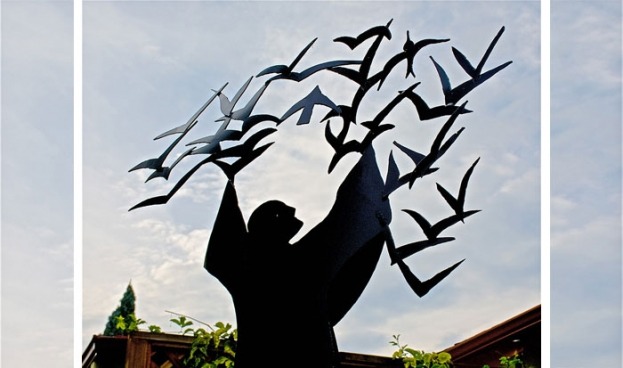As a process theologian I believe in the primacy of moments. Yes, we live our lives year to year, week to week, day to day. But most deeply, I believe, we live from moment to moment.
I learned this lesson in my twenties in a very pleasant way from a Zen master for whom I was an English teacher. His name was Keido Fukushima. (I tell the story in a short essay called "Can a Christian be a Buddhist, too?") He would always say that Zen is about living in the moment and responding to the circumstance at hand in a spirit of creativity and compassion, as best we can. I saw this in the way he lived his life. He could remember the past and anticipate the future, but he was always "present" in the here and now. Often he would encourage me to forget the past and all that I'd learned, in order to see what was present before me: another person, for example, or a tree, or a sunset, or a challenge to be faced with courage.

 Loving Friends with Alzheimer’s
Loving Friends with Alzheimer’s "J" is for Justice
"J" is for Justice "J" is for Joy
"J" is for Joy "H" is for Hospitality
"H" is for Hospitality Mary Oliver and the World of Everywhere
Mary Oliver and the World of Everywhere "V" is for Vision
"V" is for Vision "U" is for Unity
"U" is for Unity Sympathetic Joy as a Spiritual Gift
Sympathetic Joy as a Spiritual Gift "I" is for Imagination
"I" is for Imagination Pop Songs as Postmodern Angels
Pop Songs as Postmodern Angels